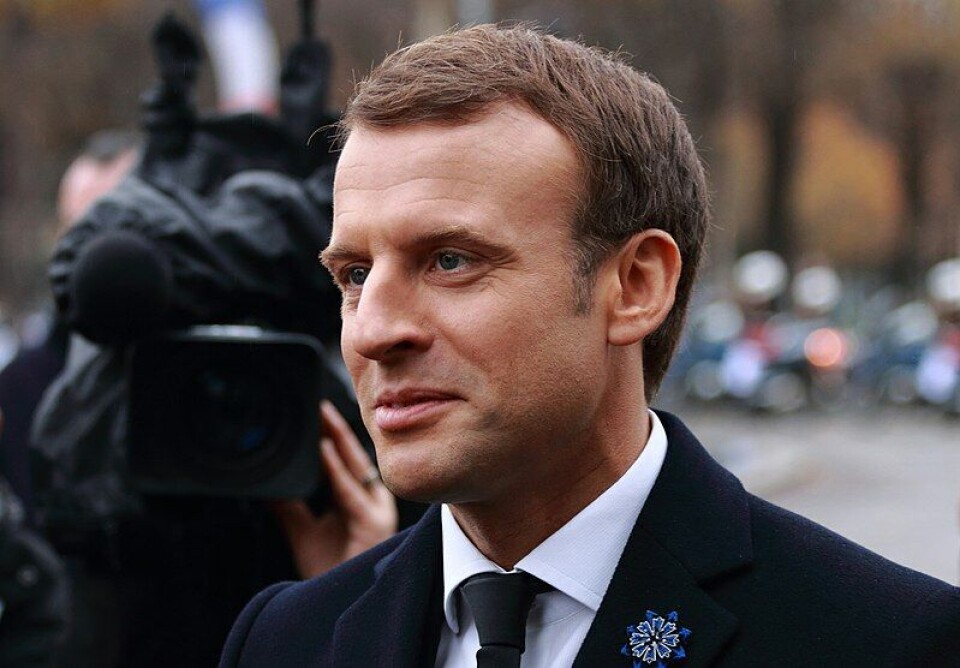-
French second-home visa issues raised in House of Lords
British people experience an "expensive and bureaucratic process" to continue living in France
-
More than 5,000 French communes use AI to identify poor rubbish sorting
Badly-sorted rubbish can cost millions so communes are turning to high-tech solutions
-
Tax on well-off retirees under consideration for 2026 budget
‘Nothing is off the table’ when it comes to finding €40 billion in savings says Labour Minister
Covid-19: President Macron gives four dates for easing of restrictions
The curfew will gradually get later until it ends on June 30 while terraces of cafés, restaurants and bars are set to open on May 19

President Emmanuel Macron has revealed in more detail a four-step plan to easing Covid-related restrictions in France over the next two months.
The president laid out the plan, which outlines the reopening of cafés and restaurants as well as museums, cinemas and sporting events, in an interview published this afternoon (April 29) in several regional French newspapers.
The announcement that the curfew will eventually be dropped on June 30 is contrary to a proposal set out by Prime Minister Jean Castex yesterday, in which he stated that the government wanted to end the state of health emergency on June 1.
Mr Castex said a transitionary period would come into effect from that date and last until October 31. Normally, the national curfew measure should end when the state of health emergency does. It is not clear if the government will now extend the state of health emergency by one month to cater for Mr Macron’s schedule.
Key dates set out by Mr Macron
May 3
The first date of the plan, which was already known, will mean the end of restrictions - and associated attestation forms - related to daytime travel beyond 10kms of your home in France. The curfew will remain in place though. Secondary pupils will also return to in-person classes.
The three following steps are dependent on how the Covid-19 situation develops.
May 19
The curfew will be pushed back to start at 21:00
Shops deemed non-essential (clothes shops, beauty salons etc) will reopen. The terraces of cafés, bars and restaurants will reopen with a maximum limit of six people per table.
Museums, cinemas and theatres will reopen with a limit on the number of people (yet to be defined).
Gatherings of up to 10 people will be allowed.
Sports halls or stadiums will reopen with a limit of 800 spectators for indoor events and 1,000 for outdoor events.
Indoor and outdoor sporting activities will be able to resume with certain health protocols in place.
June 9
The curfew will be pushed back to 23:00
Bars, cafés and restaurants will be able to reopen indoor spaces - maximum of six people per table.
Gyms and sports halls will be reopened and the range of outdoor contact sports and non-contact indoor sports allowed will be expanded.
The work-from-home rule will be relaxed.
Gatherings of no more than 1,000 people allowed.
5,000 people will be allowed at cultural or sporting events with a health pass.
Foreign tourists will be allowed to enter France with a health pass.
June 30
The curfew will end.
Limits on the number of people at events will be removed.
It will be possible to go to any event with more than 1,000 people in attendance with a health pass.
Nightclubs will remain closed.
What else did the president say in the interview?
President Macron stated in the interview with regional papers that, “we need to rediscover our French way of life, while remaining prudent and responsible: our conviviality, our culture, sport”.
He said he hoped that the whole country would be able to ease restrictions simultaneously but warned extra measures may be maintained or introduced in areas where the Covid-19 situation was still concerning.
"I am confident that the whole of France will be able to move to the May 19 stage,” he said.
“The measures will be national, but we will be able to put in place ‘emergency brakes’ in the areas where the virus is circulating too much.”
These extra measures will be applied in cities or departments where: The incidence rate (the number of people positive for Covid-19 out of 100,000 population) exceeds 400; where the incidence rate surges quickly; and where there is a saturation of patients in intensive care units.
There are eight departments currently where the incidence rate is over 400:
Seine-Sant-Denis, Val d’Oise, Val-de-Marne, Bouches-du-Rhône, Essonne, Seine-et-Marne, Oise and Paris.
In October, Mr Macron said the target that would trigger deconfinement would be reaching an average of 5,000 reported Covid-19 cases per day. Currently, an average of just under 30,000 is being reported.
Mr Macron said the “big difference” now is the availability of vaccines.
“We have seen the effectiveness of the curfew, coupled with the arrival of the vaccine in January. It's a real change in the management of the epidemic."
Some medical professionals have criticised the president’s plan to relax restrictions so quickly.
Epidemiologist Catherine Hill said that there are more people arriving in intensive care units (ICU) than in November 2020, during the peak of the second wave.
There are just under 6,000 people in ICUs in France, but that number has slowly been dropping in recent weeks.
“What’s going to happen? We will ease restrictions, but the rate is not going to keep going down - if you believe that you believe in Santa,” she said.
























